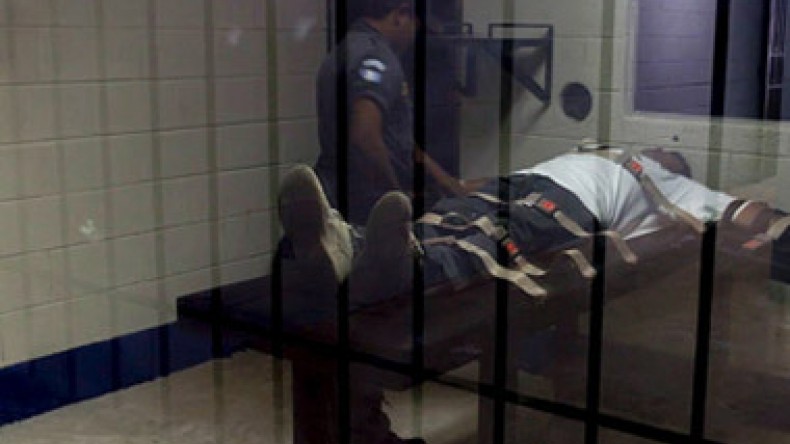
US experimenting on prisoners because of lethal drug shortage – expert
Convicted Ohio killer Dennis McGuire became on Thursday the first prisoner put to death using a new lethal drug combo. US officials used intravenous doses of two drugs, the sedative midazolam and the painkiller hydromorphone, to put McGuire to death. Human rights activists accuse state authorities of testing poisons on people. Kara Gotsch, Director of National Programs at the National Coalition to Abolish the Death Penalty, discussed the controversial issue in an interview with the Voice of Russia.
- What’s your take on the new method used for the execution of a Mr.McGuire? Do you think the use of this never-tried combination is justified?
- I certainly think it is very troubling that Ohio is going to such extreme measures to execute its citizens with not previously used drug protocol when there are so many questions about the legitimacy of the penalty to begin with.
- What is the authorities explanation? Why did they decide to use this poison?
- Pentobarbital, which was the most commonly used drug in the US, not just in Ohio but across the country, has dried out, supplies of this drug are not made available because the European manufacturer of Pentobarbital has now been banned in the US for executions. So, as a results, not just Ohio but states across the country are looking at alternative drugs to use for lethal injection and executions through lethal injection. And lots of experimentation has been going on in Florida, in Missouri and now as you see in Ohio where previously untested drugs are being used. And we are also seeing states going to what is called compounding pharmacies which are not watched over by the food and drug administration in the US using drugs that have not been properly screened and using them on prisoners which is extremely troubling. The procurement of these drugs is happening in some states in secret and we don’t know where the drugs are coming from or who exactly is making them and so it is quite a troubling development.
- Am I getting you right, you cannot say that you are actually against this particular drug? It is just a matter of transparency. You want to know more information about this drug.
- Yes, in the US our constitution bans cruel and unusual punishment. And lethal injection over the years has become the preferred standard of execution in the US because of a belief that it is less cruel and less painful and more humane to execute someone by that means. Now because the drug protocol is changing and there is so much uncertainty about what the appropriate drug protocol should be, we need to do a lot of research and estimate of making sure that the drugs we are using are in fact humane, which is required under the US constitution that bans cruel and unusual punishment. Unfortunately, the states like Ohio don’t believe that allowing pain in execution violates the constitution and I certainly would disagree with that. If there is pain involved, that would be a violation of the constitution.
- McGuire's last-minute request to delay the execution has been rejected. In your opinion, can this be considered a human rights violation?
- I think it is very unfortunate that the Federal judge in that case allowed the process to continue. I think they have made some assessments that uncertainty is going to exist because the states are in the position now trying to find alternative drugs to use in lethal injection cases. And so I guess there is some acceptance that there will be a level of uncertainty on the effectiveness of these drugs and whether they in fact will do what they are supposed to do, which is to kill the death row prisoner in a humane way if that is at all possible.
Newsfeed
Videos






























